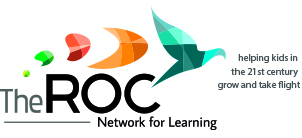The aim of this class is to introduce students to Greek mythology, and its function as an origin story, so as to better understand its influence on our world today. As we study Greek mythology, students will not only develop a frame of reference for understanding literary allusions, modern retellings, and where some of our modern-day words and expressions come from, but also gain some insight into ancient Greek culture.
Background: Greek mythology is everywhere in today’s world. Its influence can be seen in a million different ways within our culture, starting with our everyday language (“aphrodisiac,” “arachnophobia,” or “herculean,” for example), as well as the more technical, such as with medical terminology (e.g., the Atlas vertebrae). We see its influence in naming, like with countless U.S. city names (e.g., Achilles, VA, and there’s an Athens in practically every state); with school and mascot nicknames (e.g., the “Argonauts” or the “Centaurs”); and with business names (e.g, the Apollo Theater). Its influence can be felt in other cultural constructs as well, like our justice system, or the Zodiac, or in persistent superstitions, like the evil eye. Of course, its most evident influence is in the stories we tell, through art, movies, TV, books, and music. Greek mythology offers a wealth of stories and ideas from which to build other stories and concepts, making it a cornerstone of modern-day society. Which is fitting, because at its heart, Greek mythology is an origin story, or rather a compilation of stories that explain the origin and nature of the world as believed by ancient Greeks.
Concepts: We will be learning about several well-known Greek myths, including myths that include supernatural beings or events, and many well-known mythical characters. Students will learn that the ancient Greeks worshiped many gods and goddesses, and that the most powerful of these were believed to be the twelve gods that lived on Mount Olympus, the home of the gods. Students will hear about Prometheus and Pandora, Demeter and Persephone, Arachne the Weaver, the Sphinx, and Hercules, among others.
Practices: Students will have an opportunity to read aloud, to engage in class discussions, and to further develop listening and speaking skills, as well as to build and clarify critical and relevant vocabulary and to sharpen their reading comprehension and interpretation. To reinforce the content of this class, students will do some writing and potentially some individual research.
About the Instructor: Carolina Schneider has a BA in English and Creative Writing from Purdue University with graduate studies in Literature, and currently works as a writer and freelance editor, having edited for NYT and USA Today best-selling authors, in various genres. Carolina is also a homeschooling mom of two, the oldest of which is now in grad school at the University of Memphis, and the youngest, a student and teen founder of the Environmental Club at the ROC, is in his fifth year of homeschooling.



Recent Comments